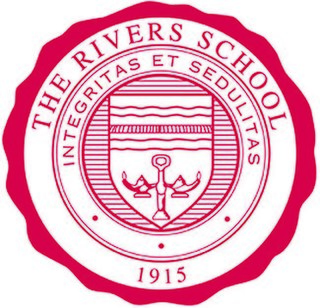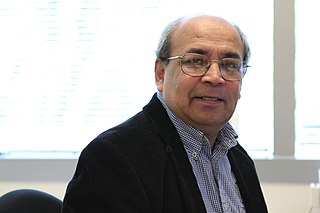Related Research Articles
Greg Turk is an American-born researcher in the field of computer graphics and a professor at the School of Interactive Computing in the College of Computing at the Georgia Institute of Technology. His paper "Zippered polygon meshes from range images", concerning the reconstruction of surfaces from point data, brought the "Stanford bunny", a frequently used example object in computer graphics research, into the CGI lexicon. Turk actually purchased the original Stanford Bunny and performed the initial scans on it. He is also known for his work on simplification of surfaces, and on reaction–diffusion-based texture synthesis. In 2008, Turk was the technical papers chair of SIGGRAPH 2008. In 2012, Greg Turk was awarded the ACM Computer Graphics Achievement Award 2012.

Technology Square, commonly called Tech Square, is a multi-block neighborhood located in Midtown Atlanta, Georgia, United States. Tech Square is bounded by 8th Street on the north, 3rd Street on the south, West Peachtree Street to the east, and Williams Street to the west. Tech Square includes several academic buildings affiliated with Georgia Tech and provides access to the campus via the Fifth Street Pedestrian Plaza Bridge, reconstructed in 2007. It also contains restaurants, retail shops, condominiums, office buildings, and a hotel.

The Rivers School is an independent, coeducational preparatory school in Weston, Massachusetts.

Tod Machover, is a composer and an innovator in the application of technology in music. He is the son of Wilma Machover, a pianist and Carl Machover, a computer scientist.
Haile is a robot percussionist developed by the Georgia Institute of Technology that listens to music in real time and creates an accompanying beat. The robot was designed in 2006 by Georgia Tech's professor of musical technology, Gil Weinberg. He and one of his graduate students, Scott Driscoll, created the robot to be able to "listen like a human, [and] improvise like a robot" (Weinberg). Haile "listens" through a microphone mounted on the drum and analyzes the sound, separating it into beats, rhythms, pitches and several other qualities. Detecting changes in these qualities helps Haile to assume either a leading or following style of play, roles that define the robot's collaborative abilities. Haile was also the first robot to create an acoustic percussion experience rather than play music through speakers. Its anthropomorphic design, which gives it movable arms that can move in any direction, allow it to create this acoustic music.

The Scheller College of Business is the business school at the Georgia Institute of Technology, a public research university in Atlanta, Georgia. It was established in 1912, and is consistently ranked in the top 30 business programs in the nation.
The Ivan Allen College of Liberal Arts is one of the six academic units at the Georgia Institute of Technology. The College conducts research and provides higher education for undergraduate, master’s, and doctoral degrees in liberal arts disciplines. The College strives to bridge the traditional separation between science, technology, engineering, and math (STEM) disciplines and the humanities and social sciences.

The Georgia Tech Library is an academic library that serves the needs of students, faculty, and staff at the Georgia Institute of Technology. The library consists of the S. Price Gilbert Memorial Library and Dorothy M. Crosland Tower. In addition, the library is connected to and manages the Clough Undergraduate Learning Commons.

Ayanna MacCalla Howard is an American roboticist, entrepreneur and educator currently serving as the dean of the College of Engineering at Ohio State University. Assuming the post in March 2021, Howard became the first woman to lead the Ohio State College of Engineering.

Gil Shohat is an Israeli classical music composer, conductor, pianist and lecturer.
The Ivan Allen Jr. Prize for Social Courage is an international award established in 2010 by the Georgia Institute of Technology in recognition of the late Ivan Allen Jr. A Georgia Tech alumnus, Allen became a pivotal leader during America's struggle for racial integration during the 1960s. While mayor of Atlanta, Georgia, USA (1962–1970), Allen risked his place in society, his political future, and his life when he testified before the U.S. Senate Commerce Committee in support of what became the Civil Rights Act of 1964.

The Georgia Institute of Technology, commonly referred to as Georgia Tech or, in the state of Georgia, as Tech, is a public research university and institute of technology in Atlanta, Georgia. It is part of the University System of Georgia and has satellite campuses in Savannah, Georgia; Metz, France; Athlone, Ireland; Shenzhen, China; and Singapore.
The Georgia Tech Center for Music Technology (GTCMT) is an interdisciplinary research center housed at Georgia Institute of Technology College of Design. The Center, founded in November 2008, by Gil Weinberg focuses on research and development of new musical technologies for music creation, performance and consumption. GTCMT's mission is to provide a collaborative framework for committed students, faculty, and researchers to apply their musical, technological, and scientific creativity to the development of innovative artistic and technological artifacts.

The main campus of the Georgia Institute of Technology occupies part of Midtown Atlanta, primarily bordered by 10th Street to the north, North Avenue to the south, and, with the exception of Tech Square, the Downtown Connector to the East, placing it well in sight of the Atlanta skyline. In 1996, the campus was the site of the athletes' village and a venue for a number of athletic events for the 1996 Summer Olympics. The construction of the Olympic Village, along with subsequent gentrification of the surrounding areas, significantly changed the campus.
Emmanuel Séjourné, born July 16, 1961 in Limoges, is a French composer and percussionist, and head of percussion at the Conservatoire de Strasbourg. His music is influenced by Western classical music and by popular music.
The School of Literature, Media, and Communication (LMC) is one of six units in the Ivan Allen College of Liberal Arts at the Georgia Institute of Technology. The School focuses primarily on interdisciplinary approaches to the humanities, social sciences, and science/technology to provide "Humanistic Perspectives in a Technological World."
ACM Student Research Competition is an annual multi-tiered research presentation competition conducted by Association for Computing Machinery (ACM) and Microsoft. The competition spans more than 20 major ACM conferences, hosting special poster sessions to showcase research at the undergraduate and graduate level. Selected semi-finalists add a slide presentation and compete for prizes in both undergraduate and graduate categories based on their knowledge, contribution, and quality of presentation. Those taking first place at the second-level competitions are invited to compete in the annual Grand Finals. Three top students in each category are selected as winners each year, representing approximately the top 1-2% of competing students.

Ashok K. Goel is a professor of computer science and human-centered computing in the School of Interactive Computing at Georgia Institute of Technology, and the chief scientist with Georgia Tech's Center for 21st Century Universities. He conducts research into cognitive systems at the intersection of artificial intelligence and cognitive science with a focus on computational design and creativity. Goel is also the executive director of National Science Foundation's AI Institute for Adult Learning and Online Education and an editor emeritus of AAAI's AI Magazine.

Eric Singer is a multi-disciplinary artist, musician, programmer and electrical, robotic and medical device engineer. He is known for his interactive art and technology works, electronic and robotic musical instruments, fire art and guerilla art.
Jason Barnes is an American amputee drummer with a robotic arm.
References
- 1 2 3 4 Smooha, Shahar; Hadar, Dea (16 March 2006). "The Beatbug Generation" – via Haaretz.
- ↑ "Gil-weinberg - School of Music - Georgia Institute of Technology - Atlanta, GA". music.gatech.edu.
- ↑ "Beatbugs". Archived from the original on 2011-08-01. Retrieved 2012-08-01.
- ↑ "Squeezables". Archived from the original on 2014-12-02. Retrieved 2012-08-01.
- ↑ "GTCMT - Haile The Robotic Musician". Archived from the original on 2012-06-30. Retrieved 2012-07-23.
- ↑ "CNN.com - Musical robot composes, performs and teaches - Oct 3, 2006". www.cnn.com.
- ↑ "Shimon". Archived from the original on 2012-06-30. Retrieved 2012-08-01.
- ↑ "A Robot Named Shimon Wants To Jam With You". NPR.org.
- ↑ Freeman, Kate. "Robot Smartphone Docking Station Will Bring the Boogie [VIDEO]". Mashable.
- ↑ Tovbot
- ↑ "Gil-weinberg - School of Music - Georgia Institute of Technology - Atlanta, GA". music.gatech.edu.
- ↑ TovbotShimi (18 June 2012). "The Shimi Band". Archived from the original on 2021-12-13 – via YouTube.
- ↑ Georgia Tech Center for Music Technology (29 April 2012). "N-400: Shimon highlights". Archived from the original on 2021-12-13 – via YouTube.
- ↑ Georgia Tech Center for Music Technology (22 March 2011). "Bafana for Shimon". Archived from the original on 2021-12-13 – via YouTube.
- ↑ "ZOOZbeat and Improvising Robot 'Shimon' Jammin'". Archived from the original on 2021-12-13 – via www.youtube.com.
- ↑ Georgia Tech Center for Music Technology (8 July 2010). "Jam'aa Demo". Archived from the original on 2021-12-13 – via YouTube.
- ↑ leech (12 December 2005). "Haile, the interactive robot drummer". Archived from the original on 2021-12-13 – via YouTube.
- ↑ "iltur". Archived from the original on 2013-10-05. Retrieved 2012-08-01.
- ↑ "Center for Music Technology (GTCMT) - Center for Music Technology (GTCMT)". gtcmt.gatech.edu.
- ↑ "Robotic Musicianship". Archived from the original on 2012-07-30. Retrieved 2012-08-01.
- ↑ "Mobile Music". Archived from the original on 2012-07-30. Retrieved 2012-08-01.